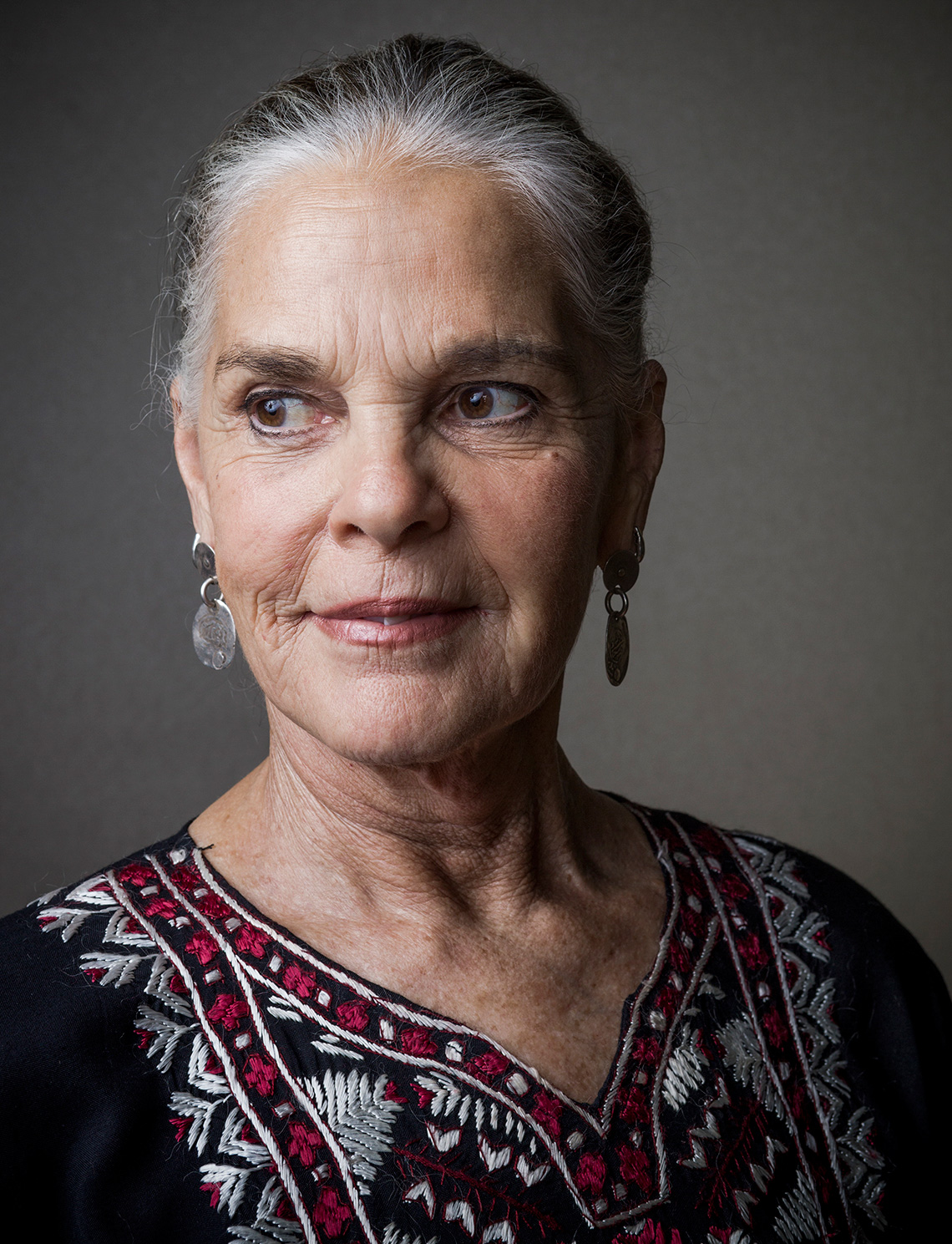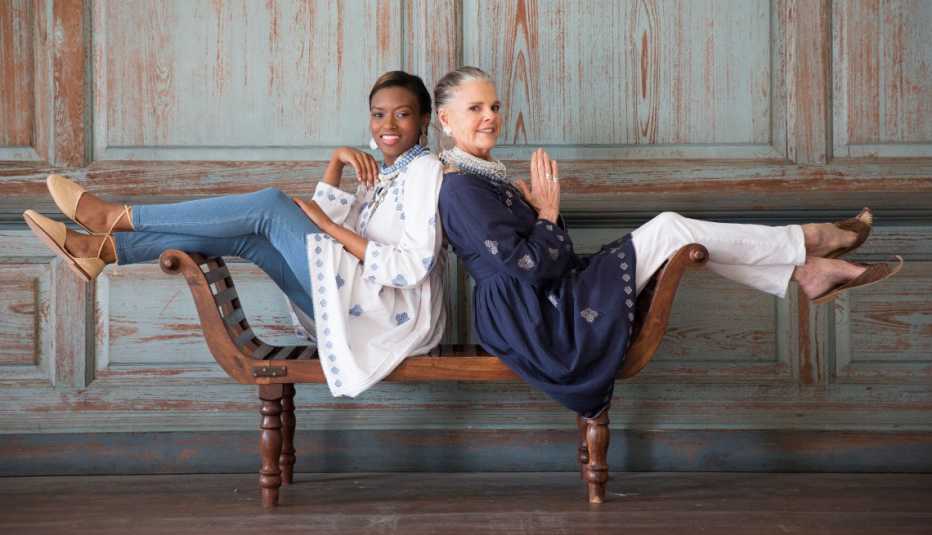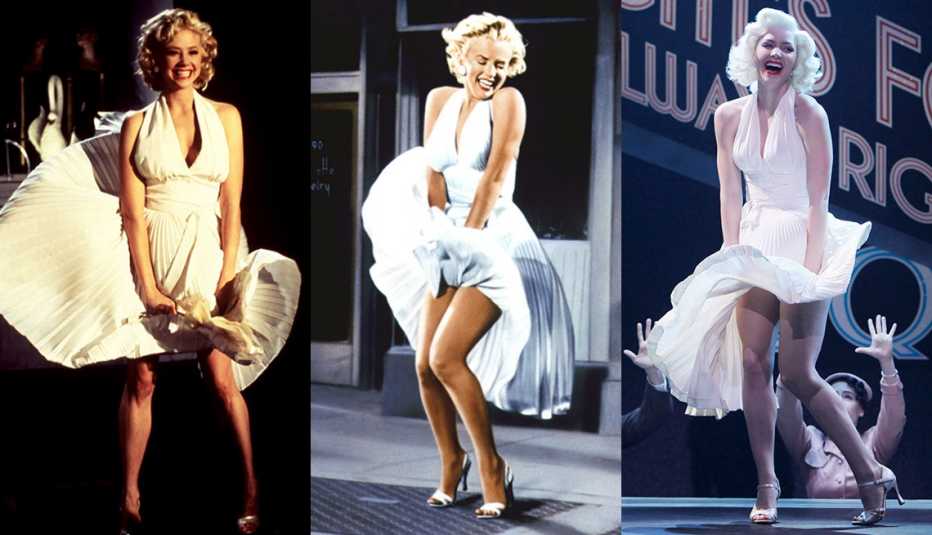AARP Hearing Center
Whether achieving fame the very moment she landed in a film (1969’s Goodbye, Columbus), defining the style of a decade (her preppy/boho influence still fills Instagram) or breaking the hearts attached to some of the biggest egos in Hollywood, Ali MacGraw always made it look so easy.
When we catch up with her today, at a trunk show for the clothes she has designed for Ibu, a line that employs women artisans in the developing world, MacGraw looks just as breezily chic as you’d expect. At 78, she’s beautiful and entirely recognizable, even without her signature chestnut locks (she let them go gray, finally, a few years ago) and heavy brows (they’re still full, but now a slightly more faded signature). For women who were obsessed with how Westchester County, N.Y-bred MacGraw wore a pair of jeans and a sweater in the 1970s, she lends the same irresistible pull to the flowy caftans and embroidered tunics laid out before her.
At lunch after the Connecticut event, MacGraw is swift to say that her later-in-life Zen — yes, she made a successful yoga video a few years back — comes after a lifetime of lesser-known struggles, and that all the confidence she projected in her early roles was anything but natural.
“I was never trained as an actress. It was frightening for me, every single solitary breathing second. I had some sort of pop-star energy, but I had no qualifications. I was never comfortable,” she explains, as we discuss the meteoric rise that started with Goodbye, Columbus, for which she won a Golden Globe for most promising female newcomer. After that auspicious start came the role of her lifetime, as the beautiful, bright and tragically doomed Jenny Cavalleri of Love Story.




































































